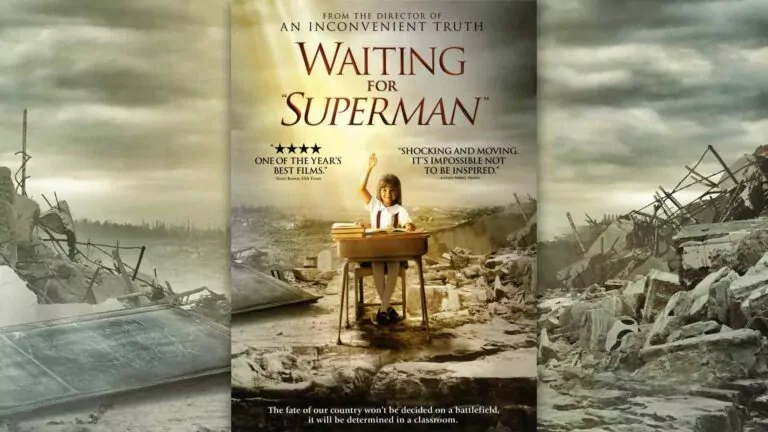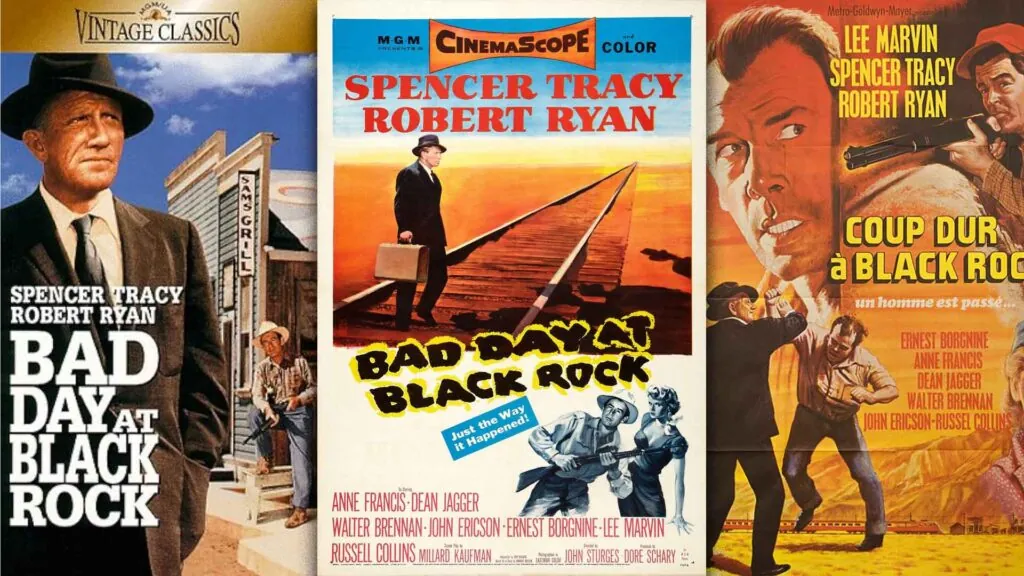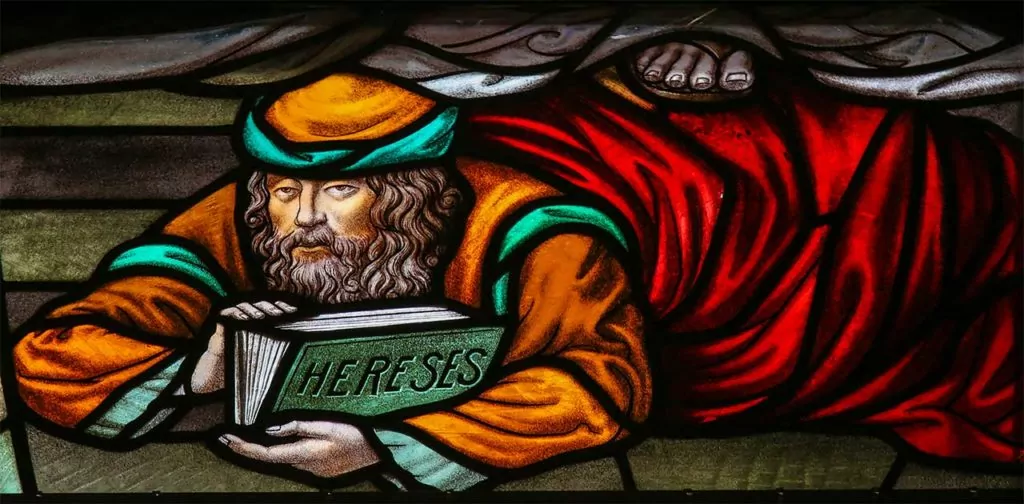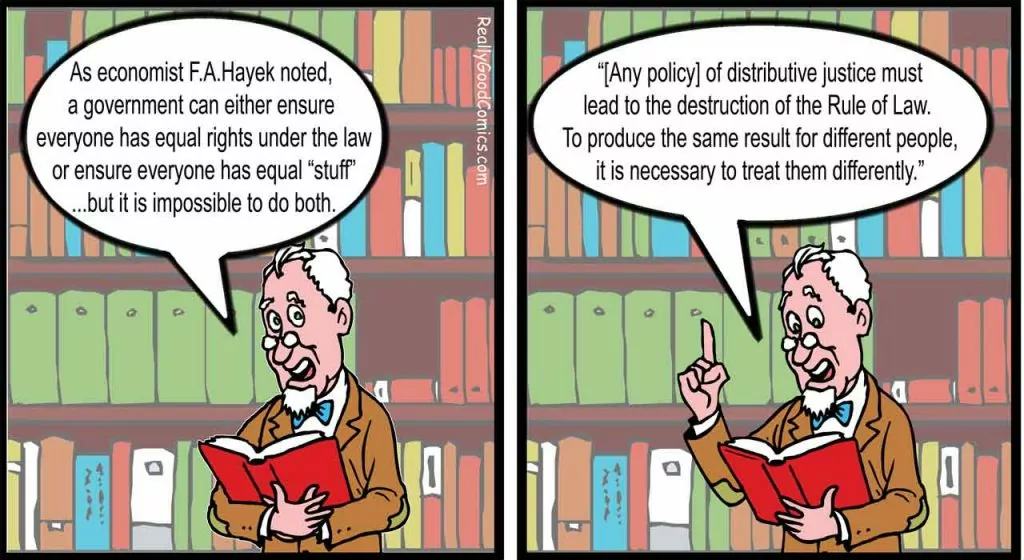Documentary
111 minutes / 2010
Rating: 8/10
“One of the saddest days of my life was when my mother told me ‘Superman’ did not exist. Cause even in the depths of the ghetto you just thought he was coming… She thought I was crying because it’s like Santa Claus is not real. I was crying because no one was coming with enough power to save us.”
– educational reformer Geoffrey Canada
The public school system in the US is so bad mere mortals don’t seem capable of fixing it. And sadly Superman isn’t available. So how can it be fixed? And more importantly, why should the primarily Canadian, private-school-supporting readership of this magazine care to find out?
Let’s start with this last question first. There are two reasons our community should watch Waiting for Superman: to better appreciate the blessing that our schools are, and to ensure our schools never make the mistakes that have destroyed the US public schools.
Doing the opposite
There is, of course, Someone powerful enough to fix all that’s wrong in these schools, but He isn’t welcome there. In fact, watching Superman is like being given a close-up look at a system based on the very opposite of what God instructs us concerning the education of our children.
- God says education is a parental (Prov. 4) responsibility? Not so in the public system; there the parents have little to no say.
- God warns that teachers will “be judged with greater strictness” (James 3:1)? The teachers’ unions won’t stand for that. They’ve negotiated contracts based on the idea that “we shouldn’t make any distinctions among teachers. A teacher is a teacher is a teacher.” In some districts unions have managed to make it next to impossible to fire teachers (disciplinary hearings can last as long as three years!) no matter how bad they might be.
So what happens when you do the opposite? Very bad things. The American system has thousands of schools so pathetic they’ve been labeled “failure factories.” If your child is unfortunate enough to have to attend one of these schools, it may not matter how gifted or determined they are – their educational future could be determined by the teachers they are saddled with.
Everyone seems ready to admit the system is broken, but the opposing sides have very different ideas of what and who is to blame. The teachers’ unions put the blame on class size, and a lack of funding. But director Davis Guggenheim argues money can’t be the pivotal factor:
“Since 1971 educational spending in the US has grown from $4,300 to more than $9,000 per student. And that’s adjusted for inflation…. So we’ve doubled what we spend on each child but double the money is worth it if we’re producing better results. Unfortunately, we’re not. Since 1971 reading scores have flat-lined, and math is no better.”
Fixing what’s broken
So how can this system be fixed? The approach suggested in Superman involves charter schools. If the unions won’t let bad teachers be fired, then, educational reformers argue, it’s time to start a new school system that isn’t controlled by the unions.
Geoffrey Canada is one of those reformers, and is a central figure in the documentary. He has started up charter schools in the very worst educational districts and given parents a seemingly outrageous promise: if they enroll their children in his schools, he will ensure they not only graduate but qualify for college. His confidence is based largely on the caliber of teacher he is able to recruit and reward. We’re told that “a bad teacher covers only 50% of the curriculum for the year; a good teacher can cover 150%.” So the ability to weed out the worst and retain the best can make an enormous difference.
The glaring omission in Guggenheim’s solution is a focus on parents. While charter schools are clearly more responsive to parents, that isn’t a point Guggenheim raises. He doesn’t seem to regard it as all that relevant.
Worth remembering
Superman shows us how good we have it. Our Christian schools are parental schools, staffed by teachers we know and go to church with. And our teachers know their role – that they are there to be an aid to, not a replacement for, parents. What a contrast with the horrors of the public system we see in Superman.
But the film can also serve as a cautionary note, warning us against errors we could easily slip into. For example, we have parental schools, but not all of our parents take an active role in their children’s education. Our teachers know their role is to assist parents, which means they must know the parents they serve, but when faced with unpleasant parents, it could be tempting to try to minimize contact. And though our school boards know the students are the reason for our schools, it could be easy, for charitable reasons, to continue to employ a lousy teacher.
So Superman is a good reminder of our blessings… and the need to keep in clear focus the purpose and vision for our schools.
Cautions
While Superman does a good job of highlighting problems in the public system, it doesn’t do as good a job of presenting the solution. Charter schools and their superior teachers are an improvement, certainly, but one more marked improvement, which goes almost unmentioned, is how these charter schools are more responsive to parents. Again, as the Bible makes clear, the education of children is a parental responsibility so this unnoticed improvement is actually the most important one.
It is also worth noting the documentary’s director. As the cover of the DVD proudly proclaims David Guggenheim also directed Al Gore’s An Inconvenient Truth, a film which, many global warming alarmists will admit, was more than willing to fudge the truth to make its point. (The most notable example: Gore talked about what might happen if the oceans rose 20 feet, which made for some dramatic graphics of water flowing through and over Manhattan, but didn’t reflect anything reported in the IPCC report.) So viewers have reason to question Guggenheim’s trustworthiness. However, I spent some time reviewing his critics’ comments (as seen on teachers’ union websites created specifically to rebut his film) and I am quite confident as to the validity of what is presented. He might have made a mistake on this or that detail, but his critics didn’t catch him telling any whoppers here.
Conclusion
Superman shows what can be done when parents and excellent teachers set high expectations for children. It is an inspiring and attractive production. The interviewees are likeable, brilliant, or quirky, and to add to the energy there’s a constant stream of short clever cartoons interspersed throughout.
Superman also shows what happens when a nation forgets that the beginning of wisdom is the fear of the Lord (Prov. 9:10). The public system in the US ignores Him (and it is no different in Canada) not just in the classroom, but in acknowledging education as a parental (not state) responsibility.
I would highly recommend this to all parents, as well as to any high school students in our schools who don’t properly appreciate the blessing that our schools are.











